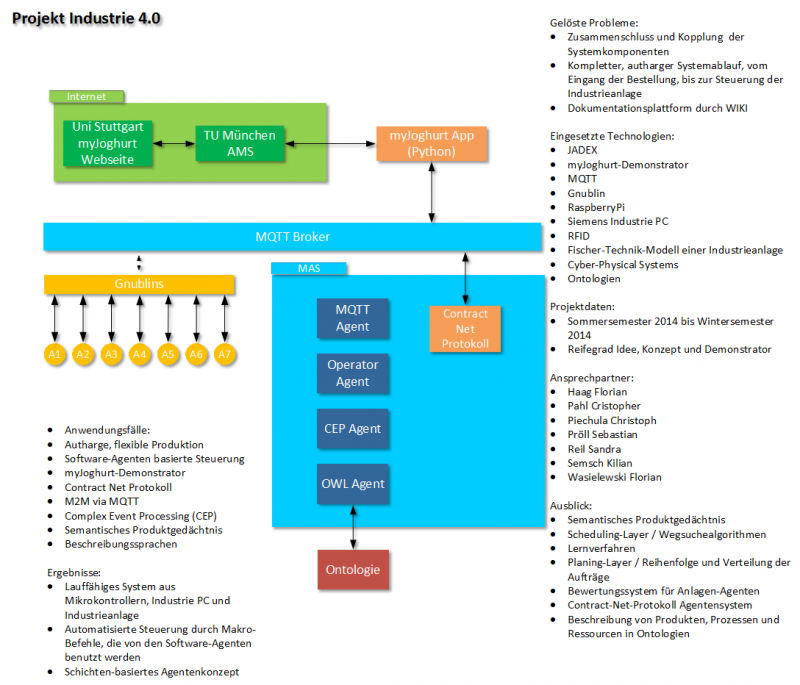
The future project Industry 4.0 is a project proposed by the German government in which computerisation in production technology is to be driven. The "intelligent factory" is the goal here, which is defined by the following items
- Resource efficiency,
- Ergonomics and
- Integration of customers and business partners in business processes
The technical basis for Industry 4.0 is cyber-physical systems and the Internet of Things.
Cyber-Physical Systems (CPS)
CPS is the combination of computer and software components with mechanical and electronic parts. These components communicate via a data infrastructure such as the Internet. A CPS is characterised by its high degree of complexity. The formation of cyber-physical systems results from the networking of embedded systems through wired or wireless communication networks.

With "Cyber-Physical Systems" and the "Internet of Things" as a basis, the Industry 4.0 project offers an enormous potential of possible research focuses. By using standard industrial components and a detailed Fischer-Technik model of an industrial plant, a platform has been created on which research can be carried out close to reality.
The industrial plant is controlled by a network of microcontrollers consisting of Rasberry-Pis. These were connected by circuits specially designed for the needs of this platform. During this period (Milestone 1), research was carried out into optimisation and alternatives. Further research was focused on the automated control of the industrial plant, the transport of workpieces and a handshake procedure for workpiece transfer between the different parts of the plant. This was realised via macro commands to enable further processing by a multi-agent system (MAS). In the course of this, several approaches to implementing a MAS were compared and a separate system was developed on the research platform of the Augsburg University of Applied Sciences. The requirements for a modular and flexible system led to the implementation of a hierarchical layer model of software agents, in which open orders are divided into finer tasks and delegated to underlying layers.
A further research focus was placed on the integration into the myJoghurt demonstrator network, which generates an order of a previously configured yoghurt to be produced. The myJoghurt demonstrator is being developed under the leadership of the Technical University of Munich and made available to the VDI/VDE-GMA Technical Committee 5.15 "Agent Systems". Research partners such as the Technical University of Munich, the University of Stuttgart, the Technical University of Dresden as well as the Augsburg University of Applied Sciences and other scientific institutes are represented in the project. The aim of the Industry 4.0 subgroup is to realise nationwide production with systems based on the concepts of Industry 4.0.
Virtual Twin
A virtual twin is to be created for our Industry 4.0 model. For this purpose, professional, industry-standard tools are used.
A first virtual twin shall be created with AnyLogic. More information about AnyLogic can be found on the AnyLogic website.
